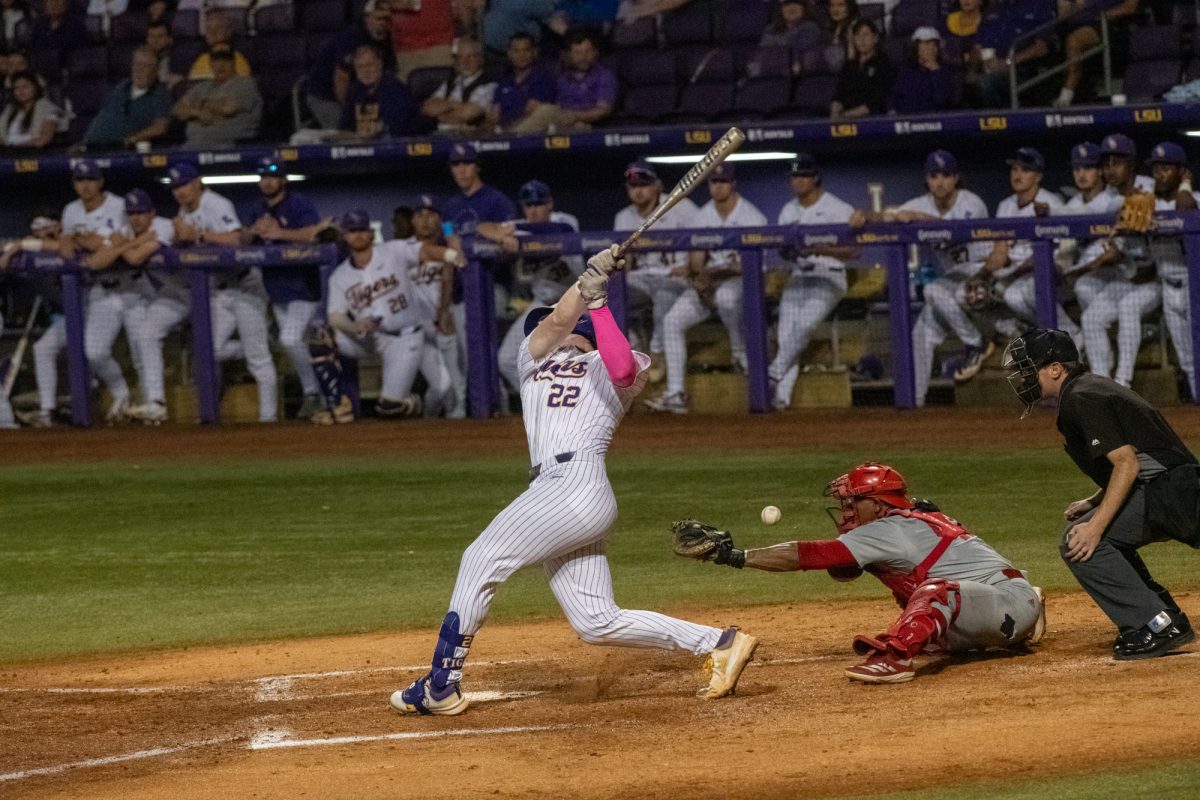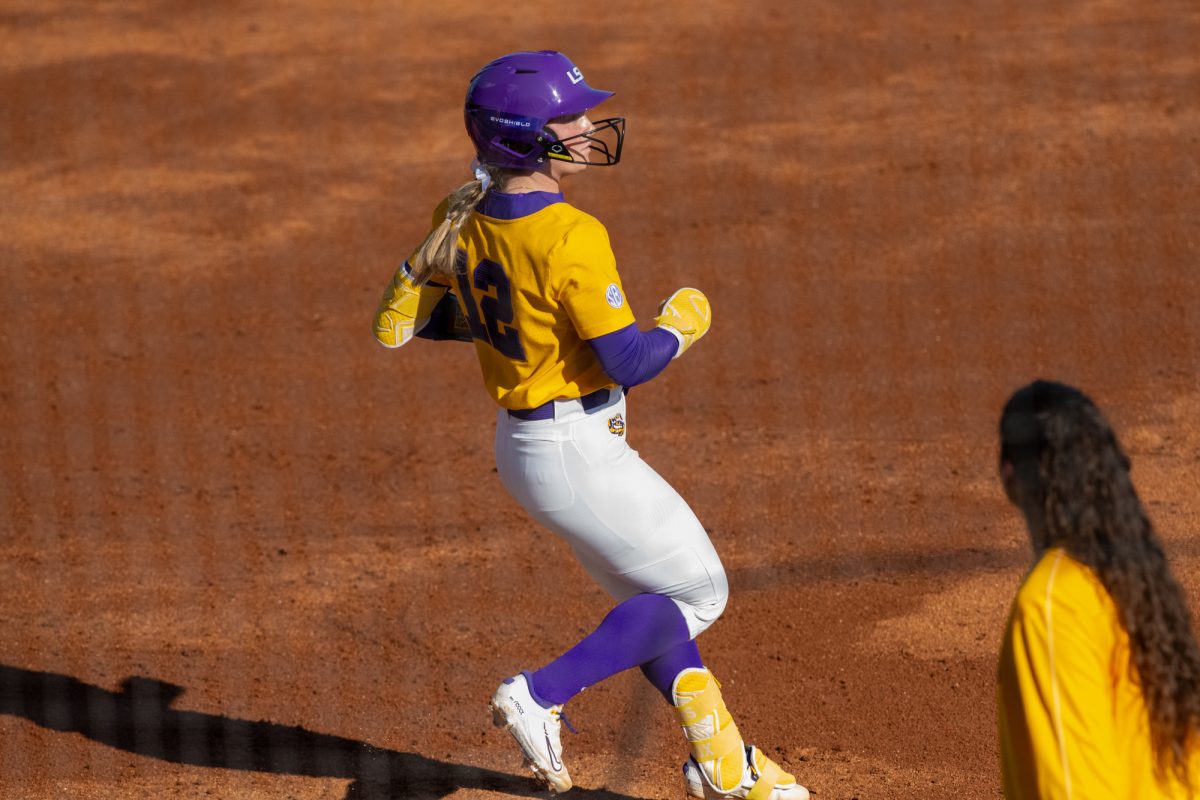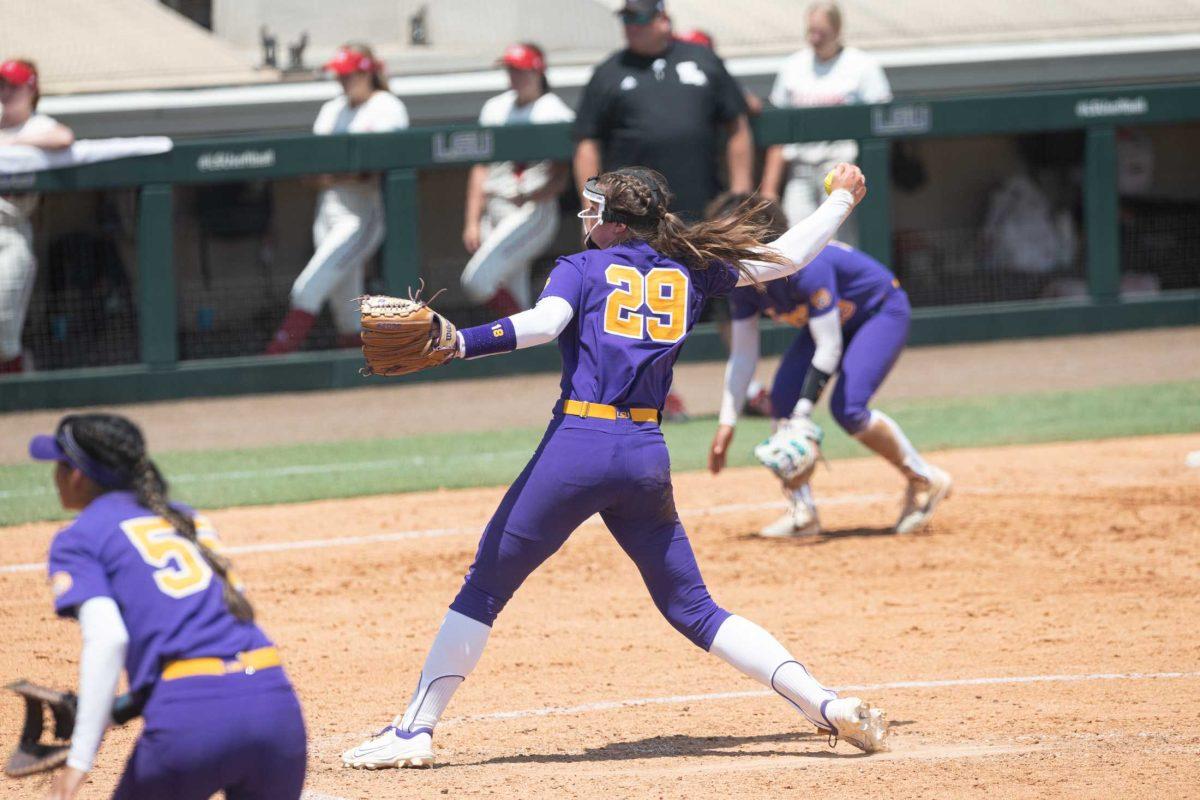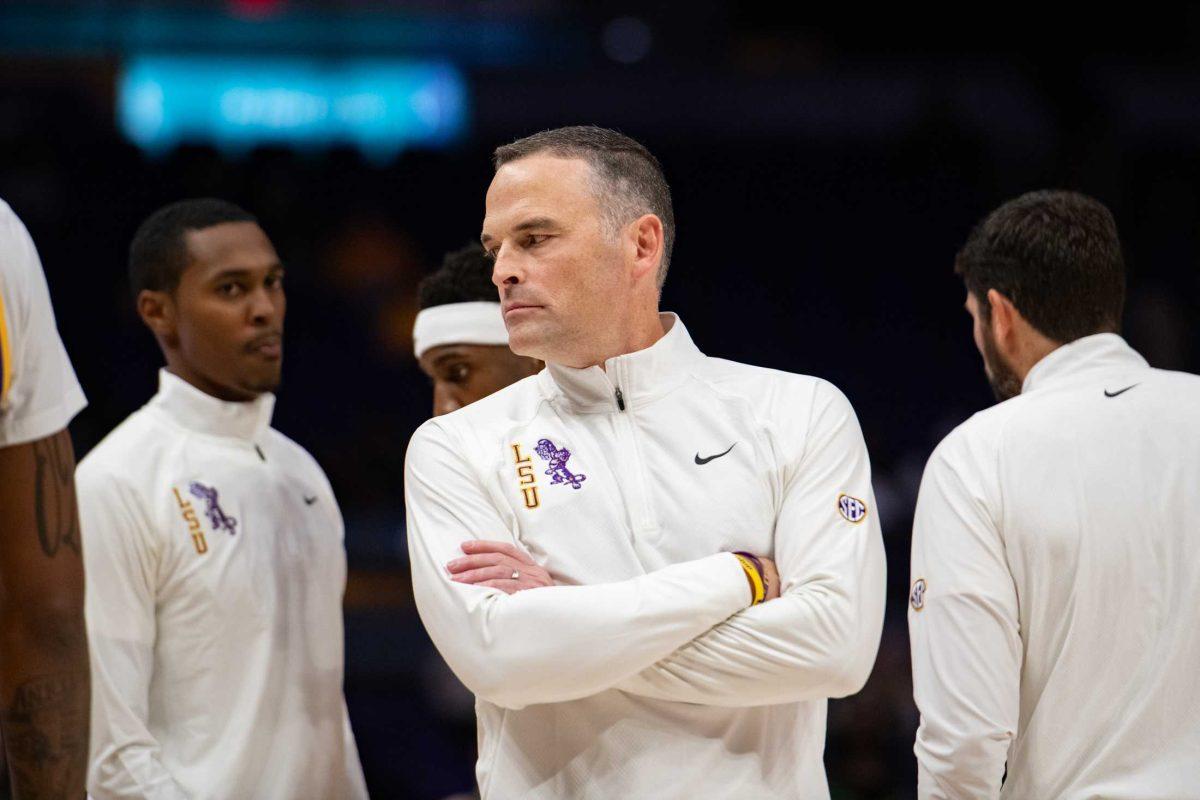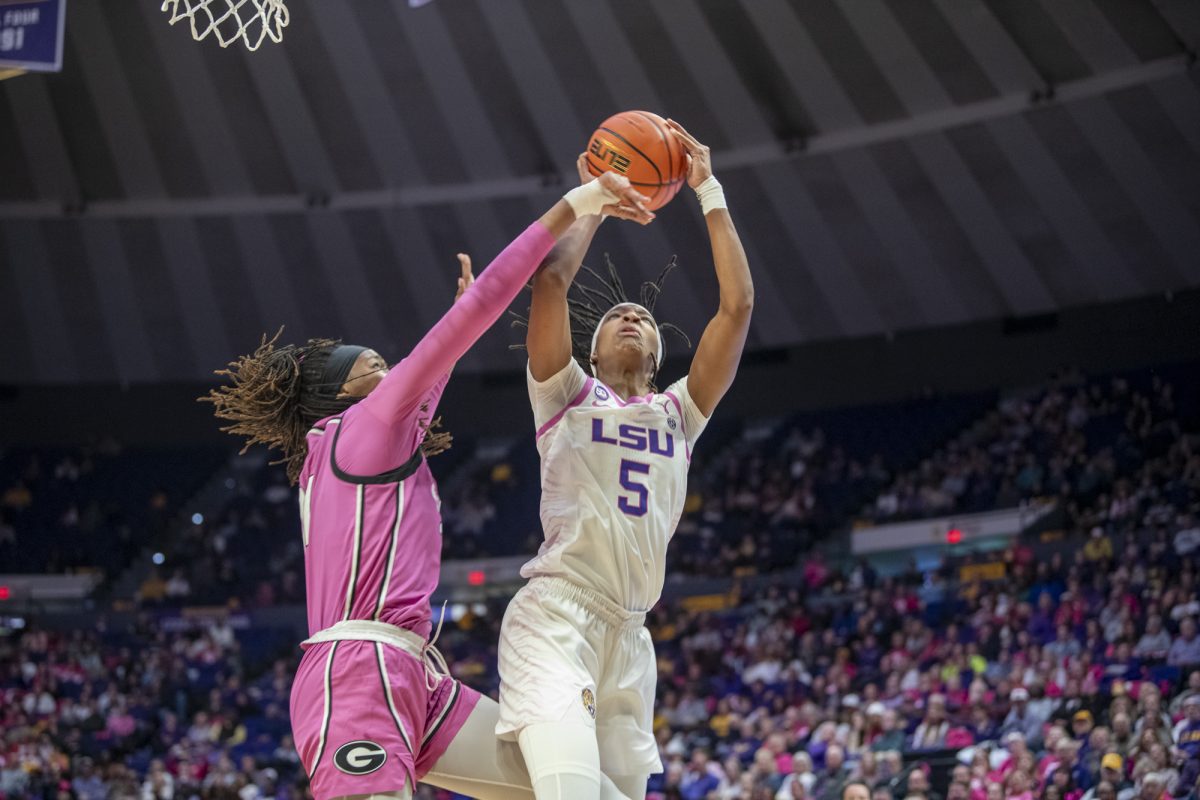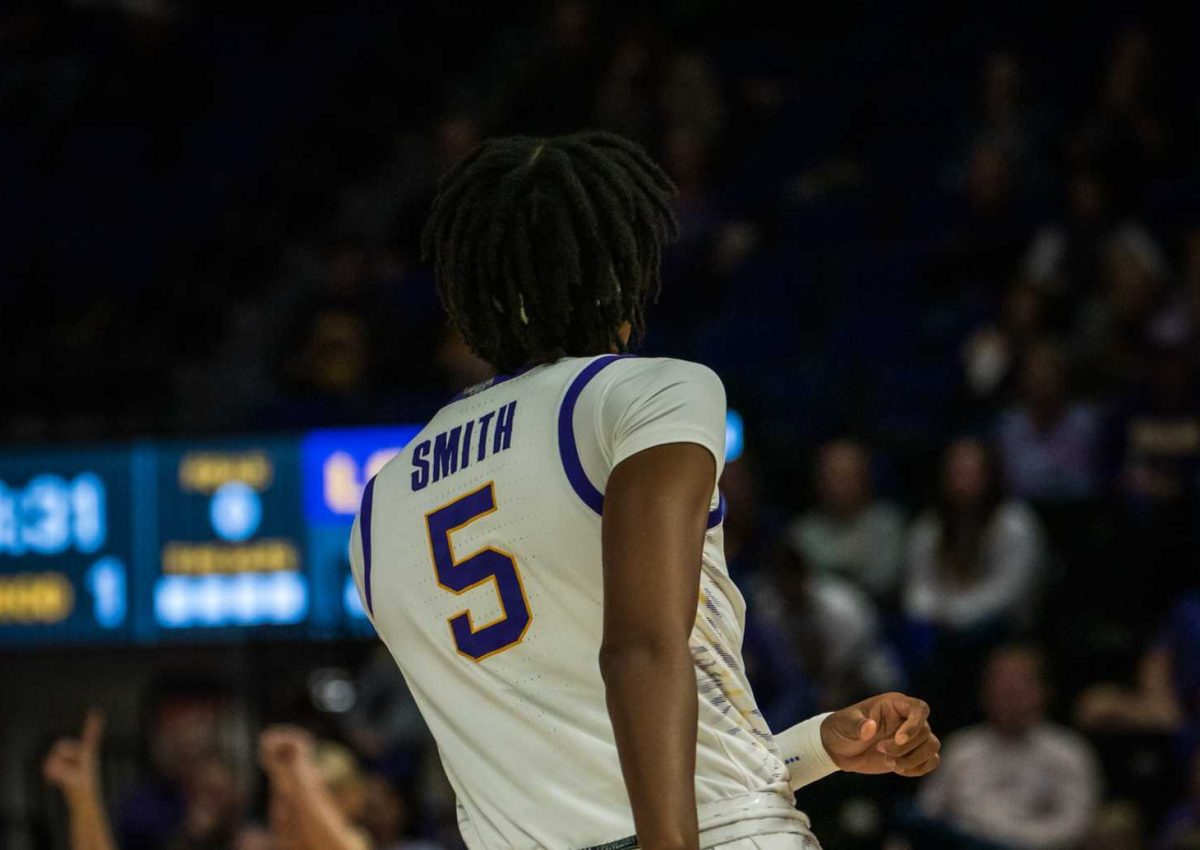There hasn’t been a repeat national champion in college baseball since South Carolina in 2011.
LSU’s narrow 4-3 loss to North Carolina in the decisive final game of the Chapel Hill regional on Monday, June 3 ensured that’ll remain the same.
Repeating after a national title run is something that’s been especially difficult in recent years, as the previous two champions before LSU failed to even qualify for their conference tournament.
“This team got hit in the face and got back up every single time,” senior pitcher Will Hellmers said.
Earlier this season, LSU was well on its way to suffering the same fate after an uninspiring 3-12 start to SEC play. The Tigers were never supposed to be here, this close to making yet another deep run.
Down the stretch of the season, LSU hit its stride and rediscovered its knack for performing in clutch moments. It rediscovered the magic that led them to the title, resulting in a 22-8 record in its last 30 games.
On Monday, that magic ran out.
“I have a broken heart just simply because I wanted to go to practice on Wednesday,” head coach Jay Johnson said. “I just love these guys.”
The game was a tight defensive battle with LSU leading 3-2 heading into the ninth inning. Up to that point, LSU had been in control, holding the lead ever since the third inning thanks to dominant pitching.
It seemed like LSU would defy the odds and keep its championship defense going.
Instead, UNC put up a run in the top of the ninth to force extra innings and scored another in the tenth with two outs, which ended up being the winner when LSU couldn’t respond.
Ultimately, LSU’s offense hit a snag down the stretch, with UNC’s excellent bullpen doing enough to keep its team within striking distance and ultimately secure the win.
With the win, the Tar Heels have now advanced to and won the best-of-three super regionals against West Virginia, earning them a spot in the College World Series that could have been LSU’s.
LSU got to this point by qualifying for the NCAA Tournament as the two-seed in the regional hosted by No. 4 UNC.
It found itself in the losers’ bracket, needing to win three straight games to stay alive in the postseason.
The Tigers first beat Wofford after trailing by five runs in the first inning, and then defeated UNC later that day to force Monday’s winner-take-all matchup.
Not only were the Tigers competing in the biggest game of the season, a regional final in which the loser would go home, but many of its best pitchers were out on rest after pitching over the seven games since Thursday.
That meant LSU was expected to rely on a platoon and have short leashes for pitching mistakes with how razor thin the margin for error was. However, the plan changed with the performance of one pitcher.
In the first inning, starter Sam Dutton made way for Javen Coleman after allowing three straight singles to open the game. Coleman got LSU out of the inning with just two runs allowed, but put the Tigers in a similar predicament in the top of the second when he allowed two UNC runners aboard.
Then, senior Will Hellmers came into the game. He didn’t come back out until midway through the eighth inning, when head coach Jay Johnson thought he’d finally done enough.
Hellmers had pitched 5.2 flawless innings, allowing just two hits and two walks and coming up with four strikeouts.
He got batters out in a variety of ways, leveraging them into fly balls and ground outs. It was a superhuman performance in the biggest game of the Metairie native’s life, but one that will unfortunately now be seldom noted.
LSU’s offense slowed down considerably after scoring in each of the first three innings following the early 2-0 deficit.
UNC pitchers Matthew Matthijs and Dalton Pence, two of the best relievers in the country and second team all-ACC selections, obstructed LSU’s offense and made it a tense pitcher’s battle all throughout.
The two combined to make sure LSU reached base just four times in the final seven innings, with one of those times coming as a result of a fielding error.
In addition, the Tar Heels’ dominant defense made great play after great play in the field to erase would-be hits, as it’s done all season.
UNC was never a team that LSU could take lightly. Through LSU’s three matchups with the Tar Heels in the Chapel Hill regional, it was abundantly clear why the team was ranked No. 4 in the nation.
UNC’s offense was no less threatening, as its power at the plate gave it the win the first time the two teams met and nearly pulled off an improbable comeback in the second matchup.
Despite the tough sledding against Hellmers, the Tar Heels’ offense came through when it mattered most.
Across the three games, UNC appropriately outscored LSU by only one collective run, 14-13. That number illustrates just how close in caliber the two teams were.
In the end, only one of them gets to play on, and that team is the Tar Heels.
Though this result is not what LSU wanted, the program is far from in a free fall. The Tigers will now have to re-align toward the offseason and preparing for a bounce-back fourth season under Johnson.









